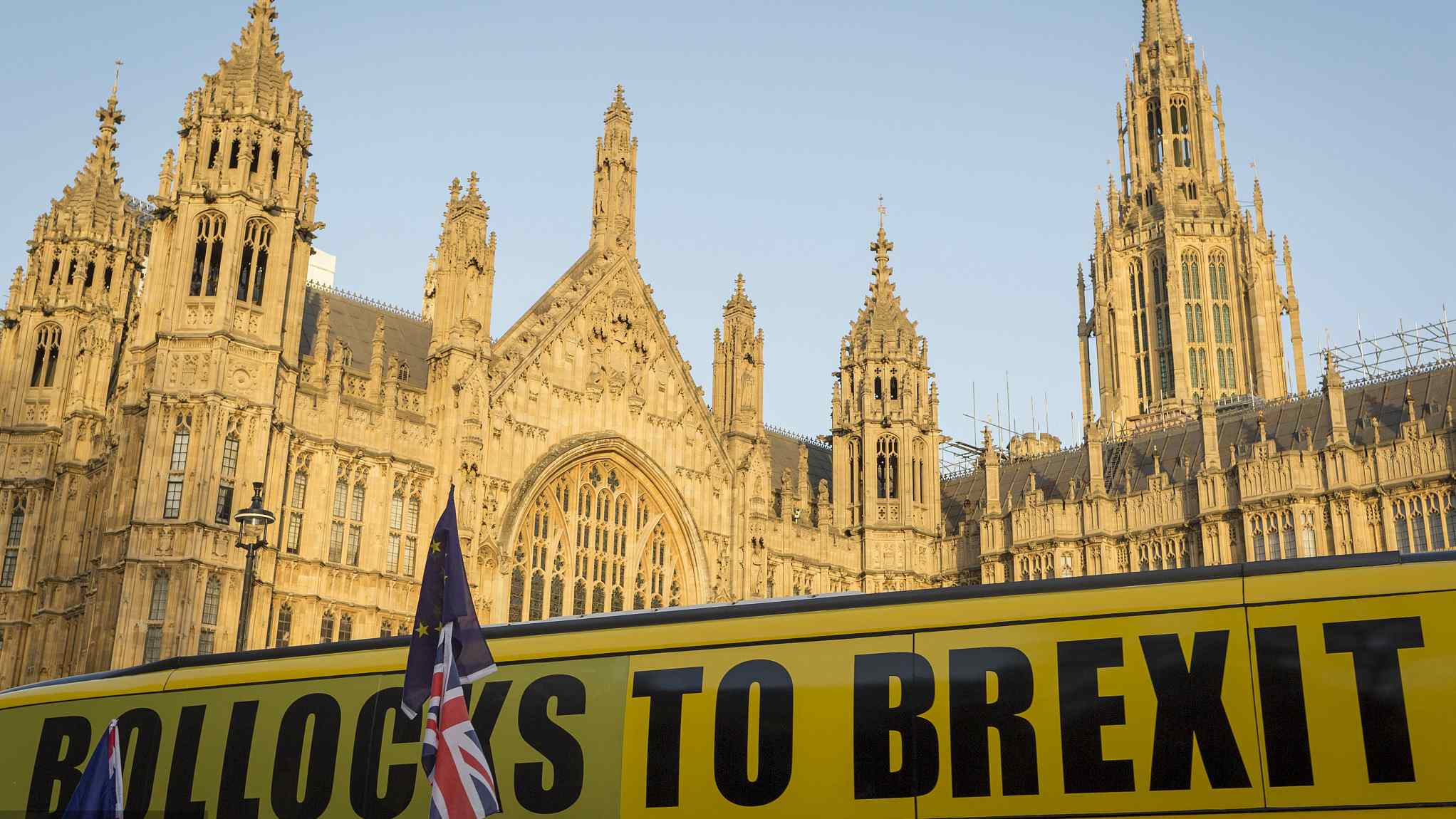Editor's note: Tom Fowdy is a UK-based political analyst. The article reflects the author's views, and not necessarily those of CGTN.
Brexit is in a state of deadlock. Theresa May's deal negotiated with Brussels faces overwhelming opposition from not only parliament, but her own party. The European Union has refused to provide any alternative to what has been offered, rebuffing an attempt by Downing Street to renegotiate the issue of the highly contentious Northern Ireland “backstop.”
With the walls seemingly closing in on any possibility of May's deal succeeding, she is receiving growing pressure from some voices to eventually concede to a second referendum or the so-called “people's vote” to cement the way forward.
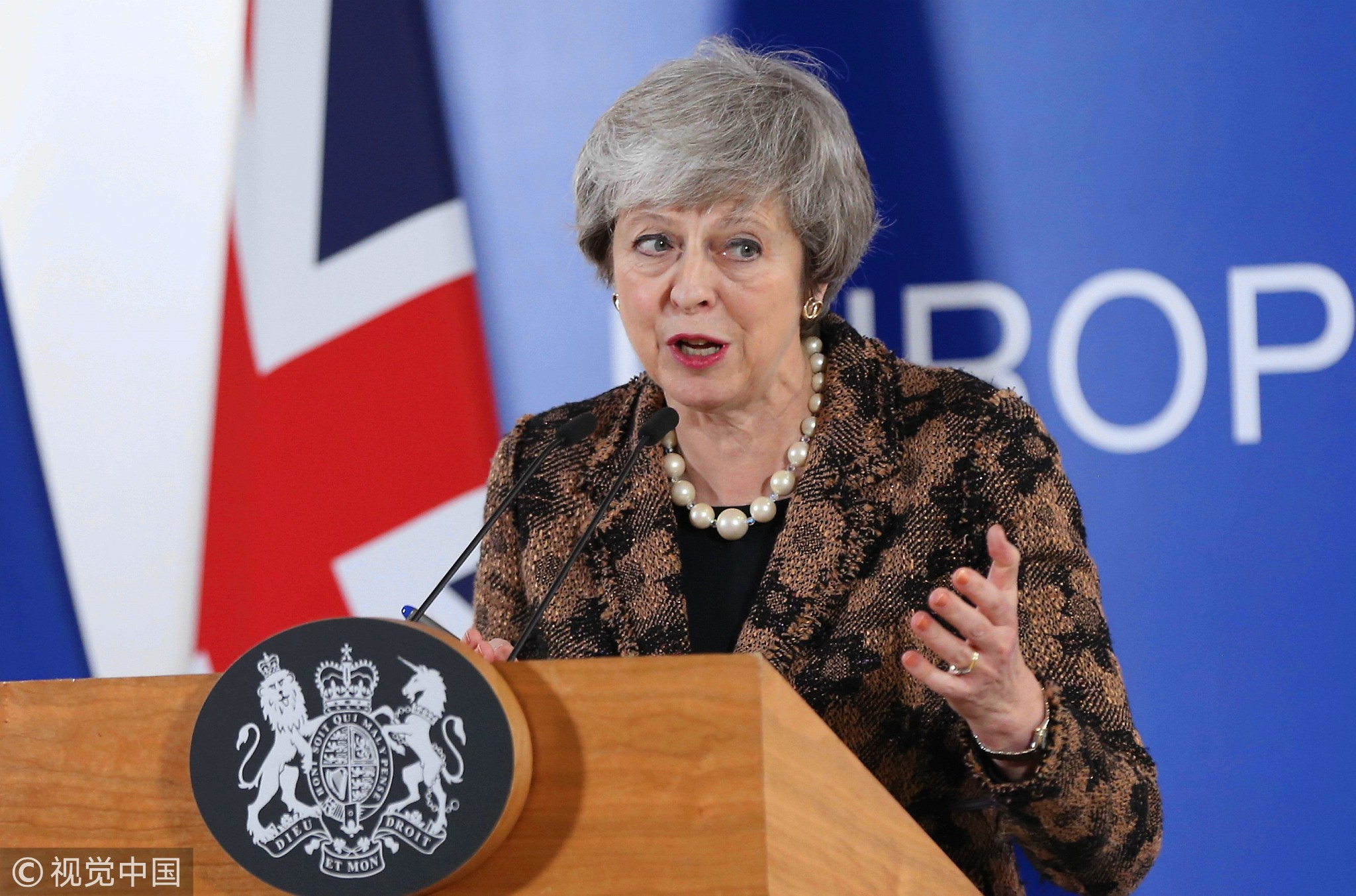
British Prime Minister Theresa May holds a press conference after the EU Leaders' Summit in Brussels, Belgium, December 14, 2018. /VCG Photo
British Prime Minister Theresa May holds a press conference after the EU Leaders' Summit in Brussels, Belgium, December 14, 2018. /VCG Photo
The prime minister, however, refuses to budge on this as well. She has instead set out a warning that such a vote will ultimately “break the British people's faith” in the ability of the country's democracy to deliver. It is certainly not an understatement to highlight that whatever one's perspective might be, Brexit as whole, represents a crisis of confidence in Britain's system.
However, contrary to the narrative of those who support remaining in the EU; having another referendum on the subject is not likely to make the matter go away. Rather than being a catch-all solution to the uncertainty and deadlock of the current impasse, a people's vote will only serve to amplify the political risks posed if things don't turn out the way they hoped.
One of the great ironies being pointed out in British politics these days is a slogan done to death by David Cameron in his 2015 election campaign. He depicted the election as a choice between a “strong and stable” government against that of a “coalition of chaos” by Ed Miliband and the Labour Party.
Yet, the twist was that it was Cameron who was offering what would be an extremely divisive referendum as part of his manifesto, against Labour's more cautious approach believing it would be a risk to jobs and the economy.
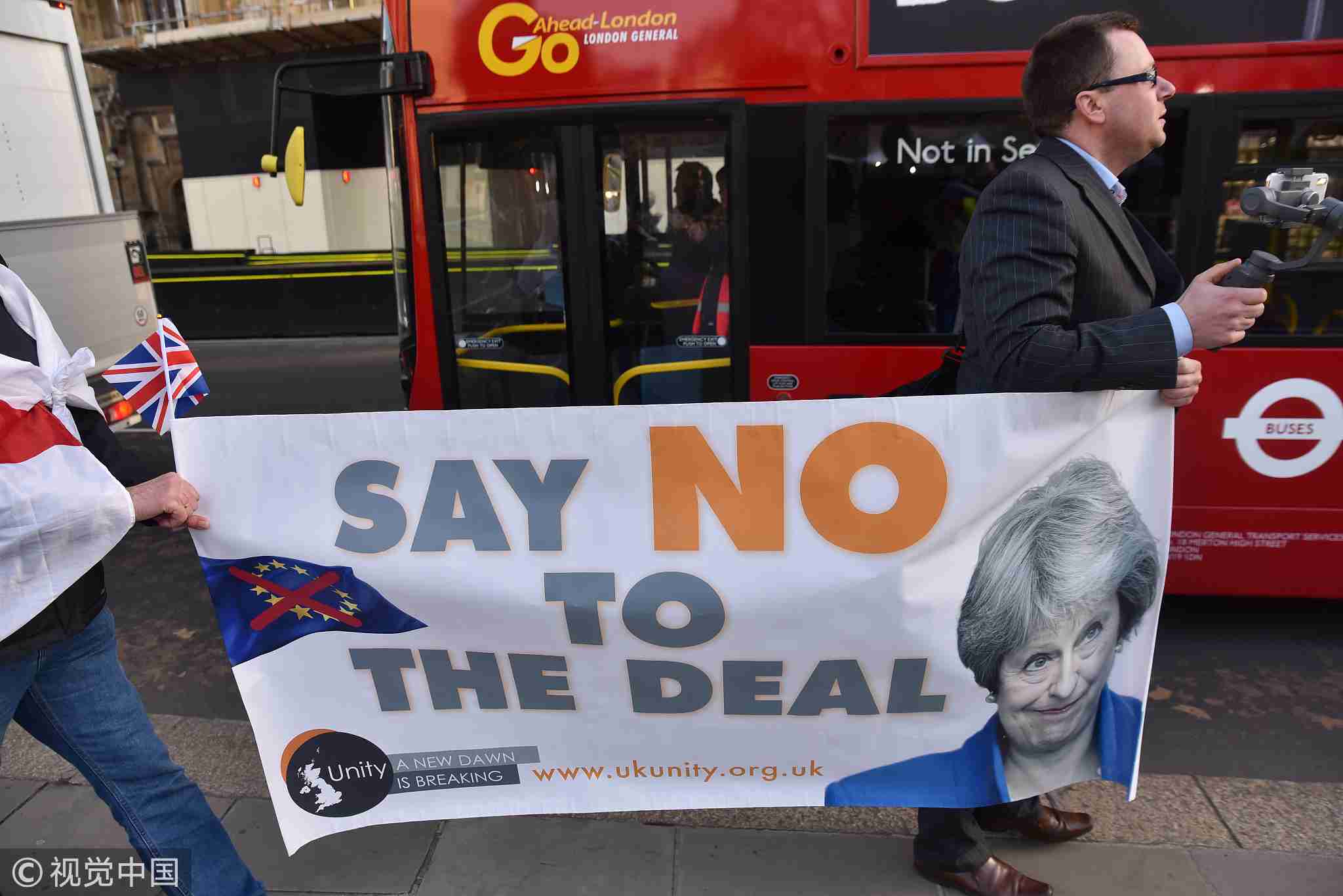
Rival groups of pro-EU and pro-Brexit protesters opposite Parliament on what was the day of the Meaningful Vote. /VCG Photo
Rival groups of pro-EU and pro-Brexit protesters opposite Parliament on what was the day of the Meaningful Vote. /VCG Photo
The referendum would prove to be just that. Three years later, it is Cameron's legacy that has created the resounding chaos. A plot twist few saw coming. Believing he could scare the British population into voting to remain in Europe and ultimately kill the issue of Europe off forever in UK politics, Cameron miscalculated and his entire strategy backfired.
Instead of a gentle and firm result which put Euroscepticism to arrest, a hugely contentious and controversial referendum campaign saw leaving come out as the unlikely victor.
The anger has since been huge. The issue has proven to be divisive and polarizing. There has been no national consensus on the result, but instead, some have campaigned hard to overturn it. It has created toxic interpretations of the vote as a result.
Unable to accept that people might vote for something seemingly so irrational in their eyes, those who support staying in the EU have sought to depict their Brexit rivals as uneducated, misinformed and lied to. The result, so they say, was not a legitimate democratic result, but one gone horribly wrong. Therefore Britain should vote again, especially in wake of the current deadlock.
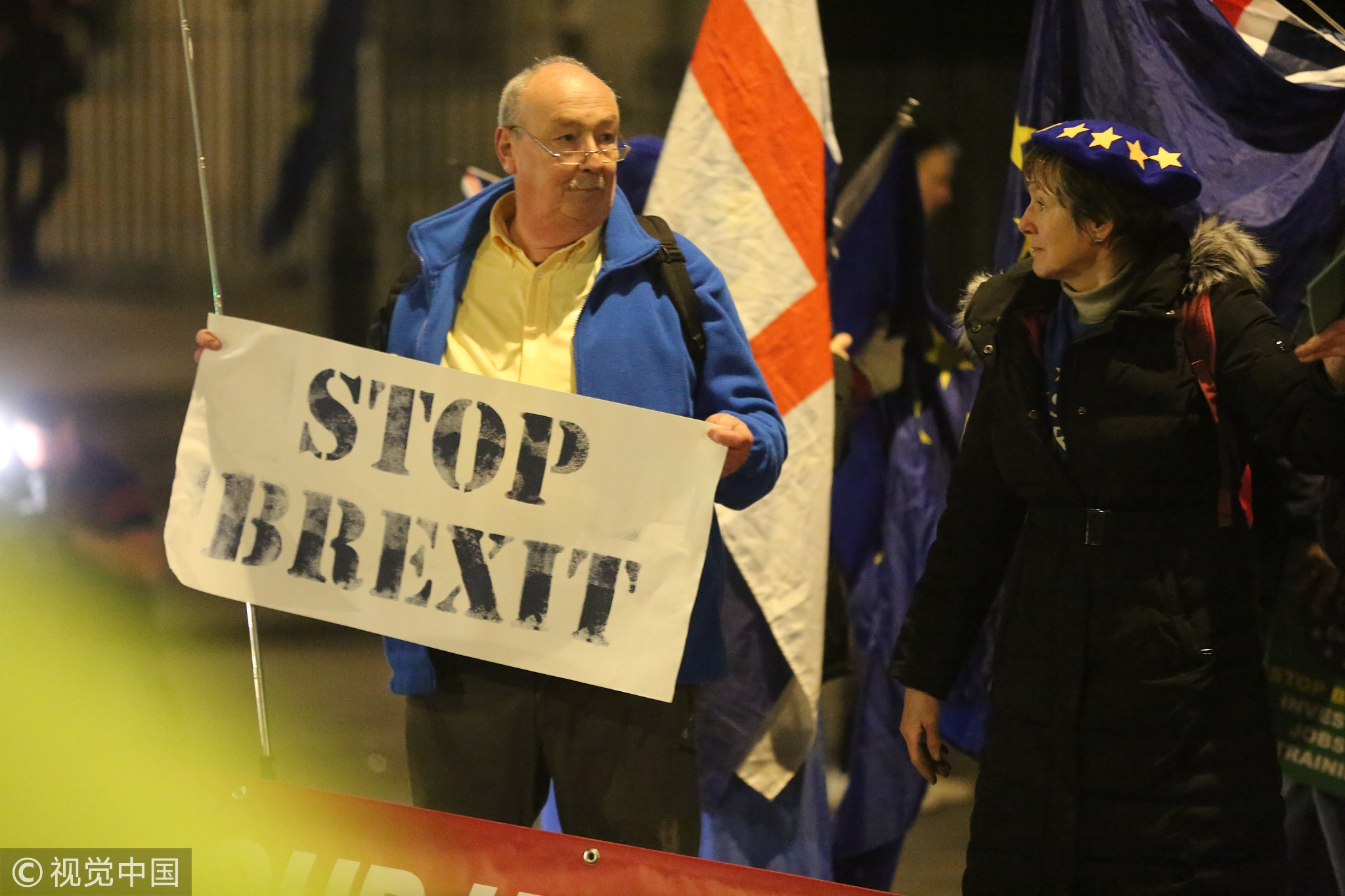
Pro-Brexit and pro-remain protesters continue to demonstrate outside UK parliament during the evening after British Prime Minister Theresa May announced Monday the postponement of Tuesdays planned Brexit vote, in London, the United Kingdom on December 11, 2018. /VCG Photo
Pro-Brexit and pro-remain protesters continue to demonstrate outside UK parliament during the evening after British Prime Minister Theresa May announced Monday the postponement of Tuesdays planned Brexit vote, in London, the United Kingdom on December 11, 2018. /VCG Photo
This proposal, however, rests on the assumption that if such a vote is held, it would somehow be free of all the irregularities that allegedly occurred in the first one and most crucially, remain would win. This is a risky calculation. Leave's victory was not expected the first time, how can it be dismissed a second time?
How can we sure it won't happen so successfully again? If they are so certain the public “didn't know what they were voting for” the first time, how will they do so the second time?
To pledge to have a sensible and organized debate on the issue is much easier said than done. Rhetoric and feeling have always proved more powerful than empirical facts on the outcome of votes and elections.
As has been seen in America, it is very easy for an inflammatory opponent to seize control of an election narrative with misinformation, no matter how many people point out the obvious wrongdoing at play.
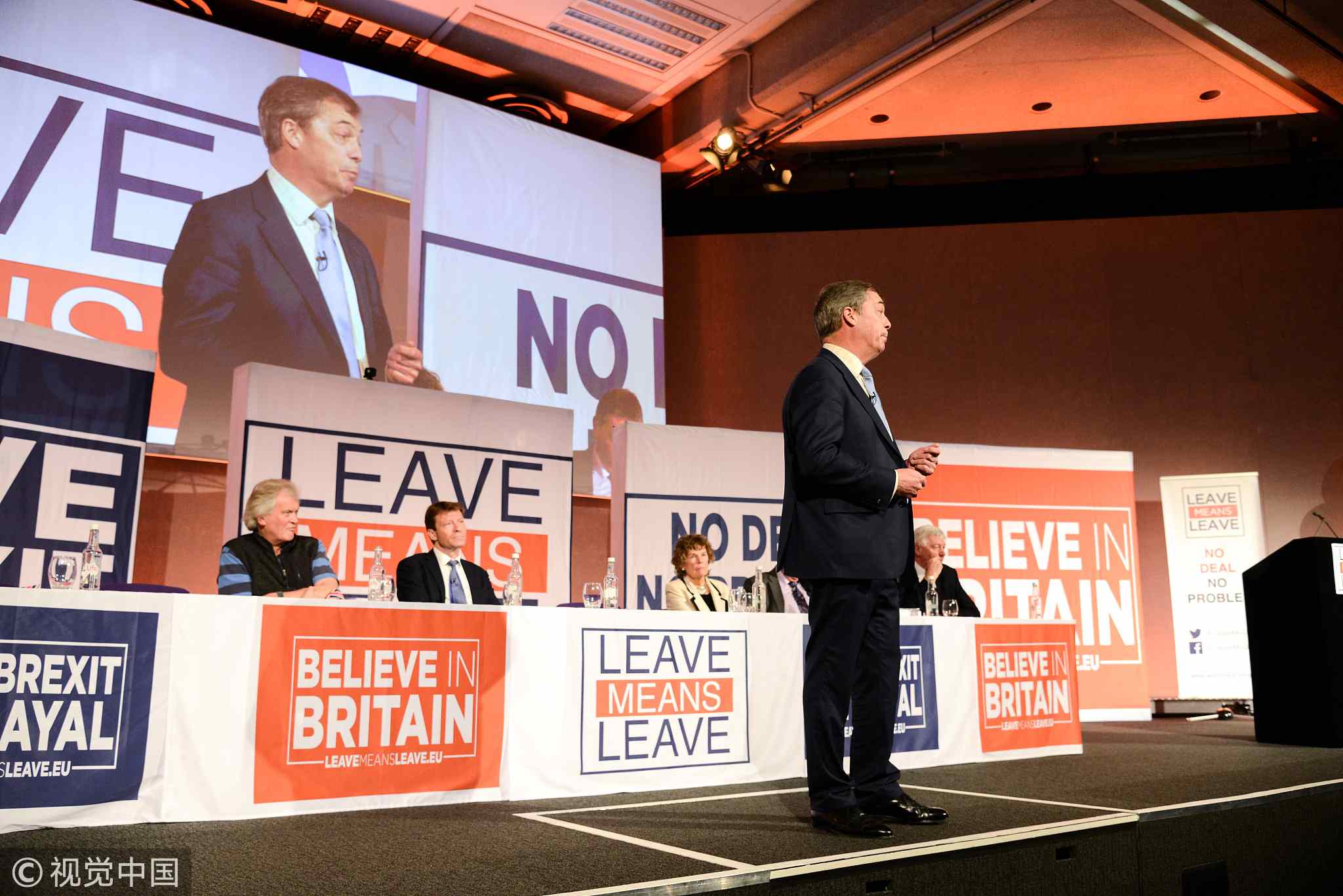
Nigel Farage speaking at Leave Means Leave' Save Brexit' rally at the Queen Elizabeth II Conference Centre in London, the UK on December 14, 2018. /VCG Photo
Nigel Farage speaking at Leave Means Leave' Save Brexit' rally at the Queen Elizabeth II Conference Centre in London, the UK on December 14, 2018. /VCG Photo
Thus, while Theresa May is obviously in a position of deadlock, the idea that a second referendum is a catch-all solution to ending this situation is not guaranteed.
It could worsen it, not only through the risk of an extreme result, such as a hard Brexit but also the fact that regardless as to which way it goes, it will without a doubt, intensify public anger, disillusionment, division, and bitterness.
Mutual hatred among groups and classes in British society would intensify. The outcome would be toxic. Theresa May is right to highlight that such a vote would cost people's faith in the system altogether.
The present situation isn't positive, but there are huge challenges and risks that those advocating the second vote must acknowledge. It is, to say the least, still a huge gamble.
(If you want to contribute and have a specific expertise, please contact us at opinions@cgtn.com)

